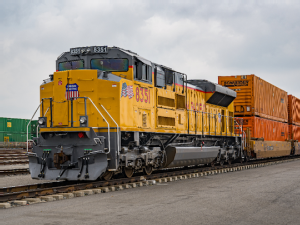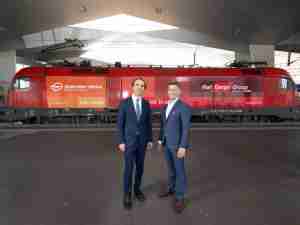Lawmakers agreed EU rules for charging hauliers for fumes and noise under controversial "Eurovignette" laws, but they did not try to make tariffs mandatory on all the EU's 30,000 km (18,600 miles) of motorways.
Road charging has proved an unusually troublesome three-year fight for the EU, but opposition from southern European governments fell away during the economic crisis as they saw the opportunity to bolster their strained finances.
Parliament approved a compromise with 505 votes in favour, 141 against. The deal is expected to be rubber-stamped by ministers in the next few weeks and then become law.
"These new EU rules will send the right price signals to operators so they will invest more in efficient logistics, less polluting vehicles and more sustainable transport," EU transport commissioner Siim Kallas said in a statement.
"They also give member states new tools to fight congestion, with possibilities to vary charges at different times of the day to get heavy lorries off the roads at peak periods," he added.
Rail operators welcomed the new rules.
"The revised directive will go some way towards creating a more level playing field between road and rail," said Johannes Ludewig of the Community of European Railways.
Rush Hour
Mountainous countries such as Austria, with many people living in narrow valleys, had pushed for hauliers to pay for the damage trucks do as they rumble through, but were opposed by outlying EU states that rely heavily on road freight.
European countries can currently charge tolls related to the cost of the infrastructure at about 15-25 cents per kilometre (0.6 of a mile).
But in future, states will be able to charge an extra 3-4 cents per kilometre to reflect the cost to public health caused by air and noise pollution.
Road authorities will also be able to vary tolls by up to 175 percent during the day in an attempt to control congestion, for instance by charging more during rush hours.
Governments must invest 15 percent of the revenues generated from tolls on improving European transport links.
They have the choice of investing the remainder in greener alternatives, such as the Brenner Basistunnel rail link to ease traffic in the Brenner mountain pass between Austria and Italy.
But hauliers and environmentalists alike criticised politicians for keeping such green investment voluntary.
"Today's vote of the European Parliament de facto fails to green road transport by not making mandatory the earmarking of the Eurovignette revenues," said the International Road Transport Union.
Lorries with the least-polluting Euro V-class engines are exempt from pollution charges until 2014, the parliament said.
Congestion charging zones like those of London and Stockholm would be unaffected by the laws, which apply mainly to motorways. (Reuters)









